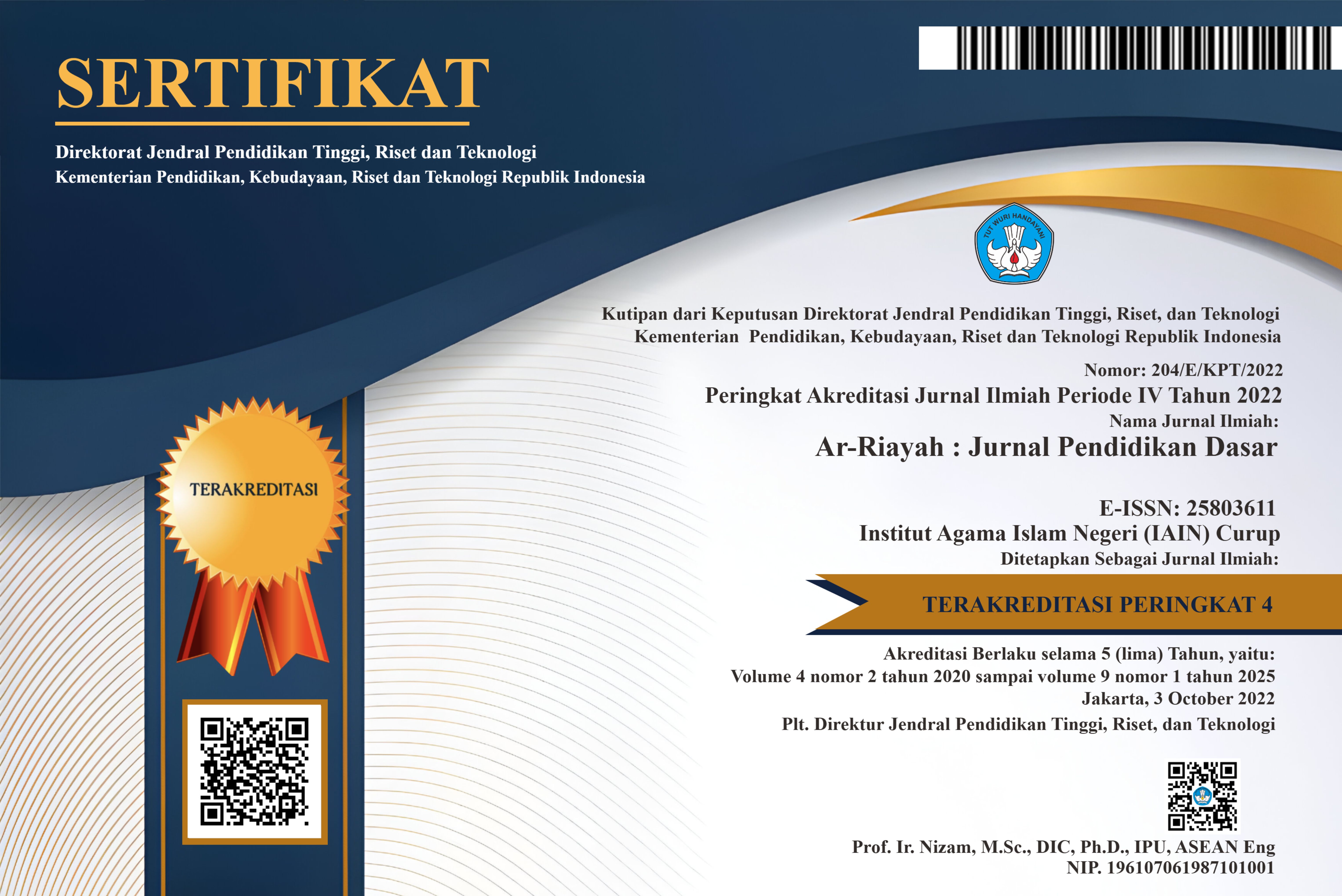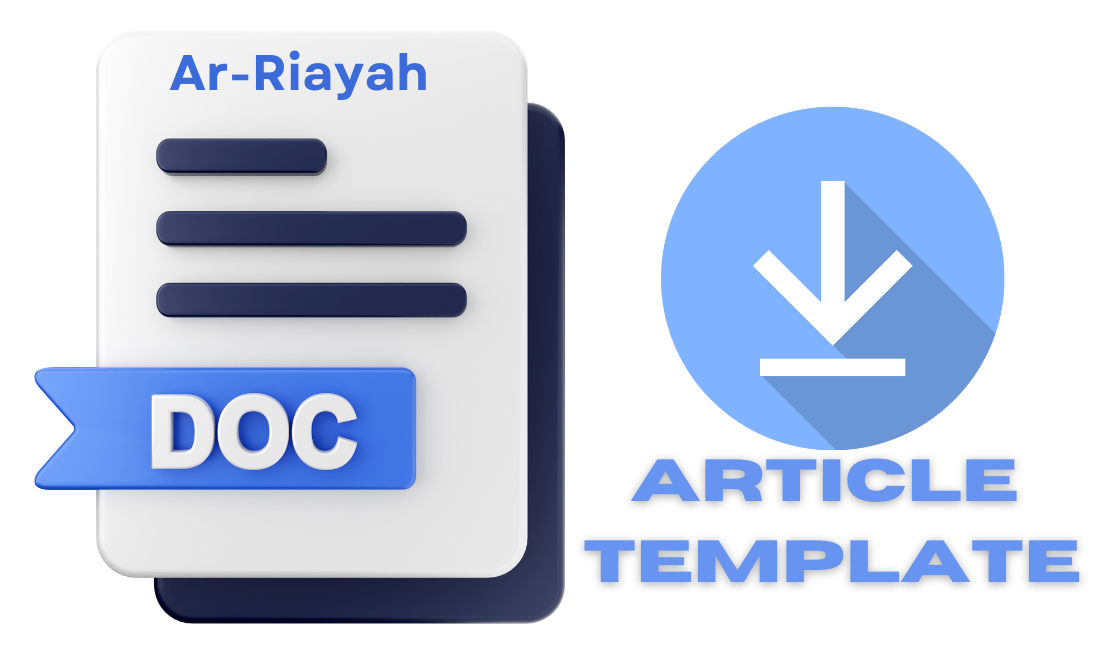Model Pembelajaran Self Organized Learning Environment (SOLE) Terhadap Berpikir Kritis Peserta Didik Kelas V Sekolah Dasar
DOI:
https://doi.org/10.29240/jpd.v8i1.9527Keywords:
Self Organized Learning Environment (SOLE), Critical Thinking, Basic EducationAbstract
This research aims to investigate the effect of implementing the Self-Organized Learning Environment (SOLE) learning model on the critical thinking abilities of class V students at SD Negeri 1 Harapan Jaya, Bandar Lampung. This learning model is known as an innovative approach that encourages independent, collaborative learning and scientific discovery The research method used was quasi-experimental with a posttest control group research design. This research sample consisted of two classes, namely the control class which received conventional learning and the experimental class which received learning using the Self Organized Learning Environment (SOLE) model. Data was collected through previously validated critical thinking test instruments. The research results showed that there was a significant increase in the critical thinking abilities of students who received learning through the Self Organized Learning Environment (SOLE) model compared to the control class. These findings indicate that the application of the Self Organized Learning Environment (SOLE) Model is able to encourage the development of critical thinking skills in students at the elementary school level. Apart from that, the results of this research also provide an implication of this research regarding the importance of implementing innovative learning models such as SOLE in improving students' critical thinking skills at the elementary school level. Educators can integrate this model into the curriculum to provide more meaningful and in-depth learning experiences, which can help students develop their critical thinking skills from an early age.
Downloads
References
Akwantin, Yuseva Tri, Yunin Hidayati, Nur Qomaria, Laila Khamsatul Muharrami, and Irsad Rosidi. “Profil Tingkat Kemampuan Berpikir Kritis Siswa SMP Pada Materi Pemanasan Global.†Jurnal Natural Science Educational Research 5, no. 1 (2022): 20–30.
Amit, Mashudi, Junaidi H, and Matsum. “Efektivitas Model Pembelajaran SOLE Pada Pelajaran Ekonomi Dalam Mengembangkan Keterampilan Berpikir Kritis Peserta Didik.†Jurnal Pendidikan Dan Pembelajaran Khatulistiwa 11, no. 10 (2022): 2206–14. https://doi.org/10.26418/jppk.v11i10.58909.
Amran, Muhammad, Lu Taris, and Muh Syahrir Amin. “Analisis Kemampuan Berpikir Kritis Siswa Kelas V Sd Dalam Mengerjakan Soal Higher Order Thinking Skills ( HOTS )†1, no. 4 (2022).
Anggraeni, Nofi, Tin Rustini, and Yona Wahyuningsih. “Keterampilan Berpikir Kritis Siswa Sekolah Dasar Pada Mata Pelajaran Ips Di Kelas Tinggi.†Jurnal Review Pendidikan Dasar: Jurnal Kajian Pendidikan Dan Hasil Penelitian 8, no. 1 (2022): 84–90.
Ariadila, Salsa Novianti, Yessi Feronica Nuryati Silalahi, Firda Hanan Fadiyah, Ujang Jamaluddin, and Sigit Setiawan. “Analisis Pentingnya Keterampilan Berpikir Kritis Terhadap Bagi Siswa.†Jurnal Ilmiah Wahana Pendidikan 9, no. 20 (2023): 664–69.
Asmawati, Luluk, Sholeh Hidayat, and Cucu Atikah. “Penerapan Model Pembelajaran Self Organizing Learning Environment (Sole) Terhadap Kemampuan Literasi Guru Paud.†Kwangsan: Jurnal Teknologi Pendidikan 9, no. 1 (2021): 90. https://doi.org/10.31800/jtp.kw.v9n1.p90--106.
Dian Ratna Handayani. “Pengaruh Model Self-Organized Learning Environment Terhadap Keterampilan Berpikir Kritis Dan Hasil Belajar Geografi Di SMA.†Geodika: Jurnal Kajian Ilmu Dan Pendidikan Geografi 7, no. 1 (2023): 108–17. https://doi.org/10.29408/geodika.v7i1.12231.
Khoerunnisa, Putri, and Syifa Masyhuril Aqwal. “Analisis Model-Model Pembelajaran.†Fondatia 4, no. 1 (2020): 1–27. https://doi.org/10.36088/fondatia.v4i1.441.
Kurniawan, Heru. Pengantar Praktis Penyusunan Instrumen Penelitian. Yogyakarta: Deepublish, 2021.
Magdalena, Ina, Alifa Hasna Aj, Dhea Auliya, and Rina Ariani. “Analisis Kemampuan Berpikir Kritis Siswa Kelas Vi Dalam Pembelajaran Ipa Di Sdn Cipete 2.†PENSA : Jurnal Pendidikan Dan Ilmu Sosial 2, no. 1 (2020): 153–62. https://ejournal.stitpn.ac.id/index.php/pensa.
Marlina, Diyan. “Penerapan Model Pembelajaran SOLE (Self Organized Learning Environments) Berbasis Daring Untuk Meningkatkan Hasil Belajar IPA SD.†Caruban: Jurnal Ilmiah Ilmu Pendidikan Dasar 4, no. 2 (2021): 70. https://doi.org/10.33603/caruban.v4i2.5319.
Rahayu, Arum Putri. “Penerapan Model Pembelajaran SOLE (Self Organized Learning Environments) Dalam Meningkatkan Hasil Belajar Bahasa Inggris Mahasiswa.†Junal Paradigma 12 (2021): 88–106.
Septiani, Uthi, Hadi Nasbey, and Esmar Budi. “Peningkatan Kemampuan Berpikir Kritis Siswa Melalui Model Pembelajaran Self Organized Learning Environment (SOLE) Berbantuan PhET Simulation Pada Materi Teori Kinetik Gas.†Prosiding Seminar Nasional Fisika X (2022): 21–26. https://doi.org/10.21009/03.SNF2022.
Sugiyono, Prof.Dr. Metode Penelitian Pendidikan (Kuantitatif, Kualitatif, Kombinasi, R&D, Dan Penelitian Pendidikan). Bandung: Alfabeta, 2019.
Sukmayasa, I Made Hendra, Ni Putu Kusuma Widiastuti, and Ni Nyoman Kurnia Wati. “Penerapan Model Pembelajaran SOLE Untuk Meningkatkan Motivasi Belajar Siswa Kelas IV SDN 4 Kampung Baru Tahun Pelajaran.†Satya Sastraharing : Jurnal Manajemen 5, no. 2 (2022): 1–8.
Sutiah. Budaya Belajar Dan Inovasi Pembelajaran PAI. Sidoarjo: NLC, 2020.
Syam, S, H Subakti, S Kristianto, D Chamidah, T Suhartati, N H Haruna, J K Harianja, J W Sitopu, Y Yurfiah, and S Purba. Belajar Dan Pembelajaran. Sumatra Utara: Yayasan Kita Menulis, 2022.
Downloads
Published
How to Cite
Issue
Section
Citation Check
License
Authors who publish with Ar-Riayah: Jurnal Pendidikan Dasar agree to the following terms:
Authors retain copyright and grant the journal right of first publication with the work simultaneously licensed under a Creative Commons Attribution-NonCommercial-ShareAlike 4.0 International License (CC BY-NC-SA 4.0) that allows others to share the work with an acknowledgment of the work's authorship and initial publication in this journal.
Authors are able to enter into separate, additional contractual arrangements for the non-exclusive distribution of the journal's published version of the work (e.g., post it to an institutional repository or publish it in a book), with an acknowledgment of its initial publication in this journal.
- Authors are permitted and encouraged to post their work online (e.g., in institutional repositories or on their website) prior to and during the submission process, as it can lead to productive exchanges, as well as earlier and greater citation of published work (See The Effect of Open Access).










